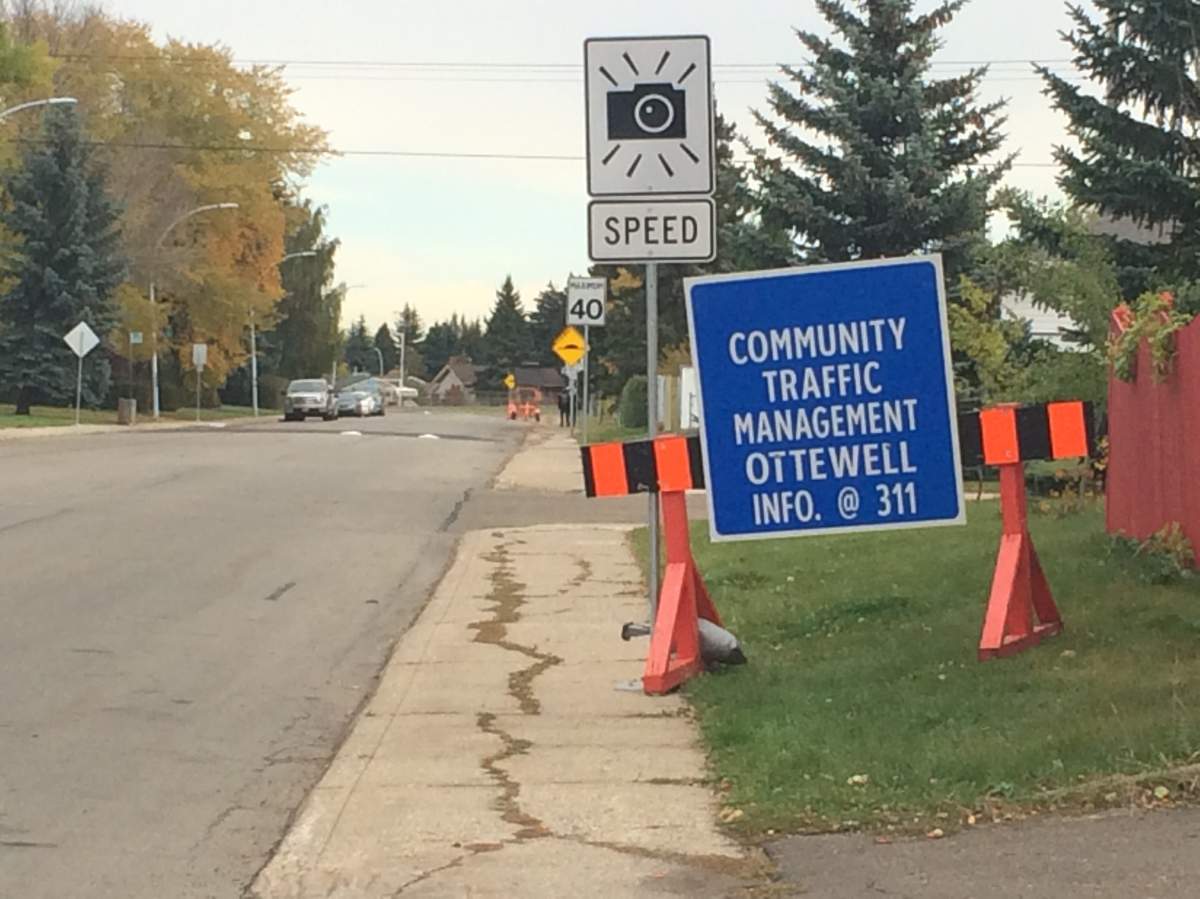Another contentious issue was debated as Edmonton City Hall on Tuesday: a standard speed limit for all residential roads. Council could decide to set a default speed limit for all residential streets at 30 km/h or 40 km/h.

Councillors clashed over implementation and the difference between mature neighbourhood roads and newer suburban ones.
READ MORE: Edmonton to consider lowering speed limits in residential neighbourhoods
Some councillors pushed for more public consultation on those issues, but Ben Henderson, who represents a south Edmonton ward, doesn’t want to wait. Ward 8 residents want 30 km/h zones, he said.
“They do not feel safe walking on their local roads right now. We’ve heard loud and clear from them they want something different.
“We have another neighbourhood that isn’t in my ward that has already gone out and done this work to go around their neighbourhood and get public support and we’ve been unable to help them. This will mean another two or three years before they can see any action on that,” Henderson said.
READ MORE: Edmonton communities split over traffic-calming measures
Ward 3 Councillor Jon Dziadyk says he’s received a different message from his constituents in north Edmonton.
“In my consultations with almost everyone outside this building, they’re against the suggestion of possibly bringing residential speed limits to 30 km/h. That’s my personal experience.
“I engage with a wide number of constituents and almost no one has suggested that would be a good idea.”
Dziadyk is asking for ways certain communities can opt out, especially after a 2011 pilot project that had six neighbourhoods test a 40 km/h zone instead of 50 km/h, and three of them wanted out after one year of testing.
READ MORE: Councillors will try to streamline speed limits on Edmonton roads
Councillors who represent mature neighbourhoods with straight-line grid road networks have one understanding of what a local road is while those representing a more modern suburban design have a different perspective.
“I’m getting the sense of fatigue,” Ward 5 Councillor Sarah Hamilton said. “People are tired of the change right now and they’d like some consistency from their council.”

Get daily National news
Hamilton represents voters in the west end. She thinks council needs more quantifiable data that proves slower limits will make a difference if it considers implementation.
“Without that data I think it’s going on feelings and I don’t think that’s enough to change people’s minds.
“There are people in my ward who commute upwards of two kilometres on a local or collector road and that isn’t fair to them. I know it doesn’t seem like a lot but it’s really slow going at 30 or 40 km/h at 10 o’clock at night when you’ve had a long day.”
Downtown, Councillor Scott McKeen says his constituents want 30 km/h as the speed limit and they made their views known during the last two election campaigns.
“We have a clash of values here and we’re trying to get at it through tactical means and I wish us luck on that,” McKeen said.
Ward 11 councillor, Mike Nickel, also expressed some concerns.
“I just want to avoid repeating the same mistakes of the past where we’ve carpet-bombed a city with one-size-fits-all policy,” he said. “Try it out, that’s what any businessman would do; he would prototype the product first.”
READ MORE: Councillors request changes to Edmonton playground zones but postpone decision
There are both new and mature neighbourhoods in Ward 10 and there’s no consensus on a default residential speed limit.
“My gut tells me that there’s more support for this in the grid neighbourhoods than there is the further south you go for sure,” Councillor Michael Walters said. “But I still think there’s a lot of confusion about implementation and how it would work.
“We can’t take for granted that it’s going to be an easy roll-out and it’s going to make tons of sense to everybody and all the signage is going to be clear.”
More study will be done on the definition of different kinds of roads and if those speed limits should be changed.
Councillors asked administration to:
- Develop revised definitions of local, collector, arterial and residential roads … and consider current and intended volume of traffic, roadway geometry and surrounding land uses
- Develop a set of universal maximum speed limits based on these revised definitions
- Develop criteria regarding speed reduction zones, including but not limited to playground zones, that reduces the local speed limit to accommodate unique circumstances
- Wherever possible, use existing provincial legislation and guidelines to complete the work in items A to C above
- Engage with residents and communities to develop an understanding and gather feedback for Vision Zero, current traffic safety concerns, the new defintiions and potential pros and cons to residents on possible speed limit changes
- Develop a mechanism whereby residents can request a review of a particular road to establish a revised speed limit
- Prepare draft amendments to the Speed Limits Bylaw and a proposed implementation plan in consideration of the work above.








Comments
Want to discuss? Please read our Commenting Policy first.